Ants collected in Congo by Eric Zassi, 2007-8
| The Ants of Africa Ants collected in Congo by Eric Zassi, 2007-8 |
|
Ants from Congo - the "Reserve Naturelle des Gorilles de Lesio-Louna" - commentary and photographs by Yves Braet
The reserve is situated in a area of sandy soils. The major rivers Lesio and Luna run South-North through the reserve. These rivers together with smaller ones are bordered by some marshy areas (with Mitragyna stipulosa (DC.) Kuntze, and some Raphia sp.) and gallery forests with several kinds of plants (Alchornea cordifolia (Schumach. & Thonn.) Müll.Arg., Ancystrophyllum secundiflorum (P. Beauv.) Wendl. Uapaca heudelotii Baill., Irvingia smithii Hook.F.). Temperatures average around 23-25°C with some extremes of 18°C and 32°C. Annual average rainfall is around 1400 ŕ 2000 mm. The maximum altitude is 700 m but our field sites were around 350 m. The main vegetation cover is savanna with varying tree cover, primarily Hymenocardia acida Tul., Annona arenaria Thonn. Strychnos pungens Solered., Syzygium guineense var. macrocarpum Engl., Garcinia huillensis Welw. Ex Oliv. Ochna gilletiana Gilg., Vitex spp, Bridelia ferruginea Benth. The grass species are mostly Poaceae, including: Hyparrhenia diplandra Hack. Stapf Loudetia demeusei De Wild and Loudetia simplex Nees C. E., sometimes in association with Ctenium newtonii, Hack., Panicum spp., Landolphia spp. These savanna areas are submitted regularly to bush fires ending at the border of the gallery forest. Some biodiversity studies have been done or are still running (mammals, birds, fishes, savanna plants) but no insect groups have been studied in depth. For this reason, with the help and the support of the GERDIB and the John Aspinall Foundation, we made collections in several parts of this protected area during a 4-month period (November 2007 to February 2008) that is during the rainy season and the start of the short dry season. The protocol follow the A.L.L. method [see Agosti et al. 2000. http://www.antbase.org/databases/publications_files/publications_20330.htm]. For our study three sites were investigated: gallery forest along the river, wooded savanna and the area around the village of Mah). For each site, three transects of pitfall traps were used for a total of 9 transects, 180 pitfalls. These yielded a total of 592 occurrences and 2755 specimens. The spécimens were first separated into morpho-species. A voucher collection was established in the GERDIB lab (Groupe d'Etude et de Recherche sur la Diversité Biologique), route de l'Auberge Gascogne Château d'eau, Brazzaville) and some specimens of each morphospecies sent to Dr. Brian Taylor for accurate identifications. 8-9.xi.2007 at S 03°16'13.9" E 015°28'21.2" -
Gallery Forest |
| View of the hills, savanna and patches of gallery forest | View of the hills, savanna and patches of gallery forest |
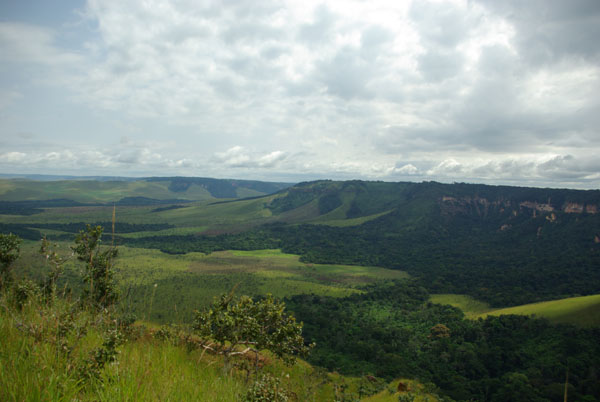 |
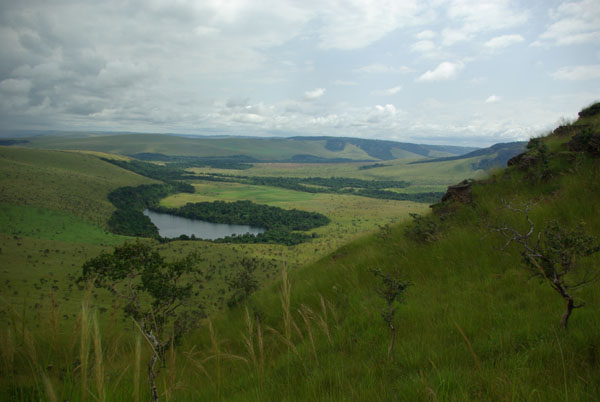 |
| Wooded savanna | Wooded savanna |
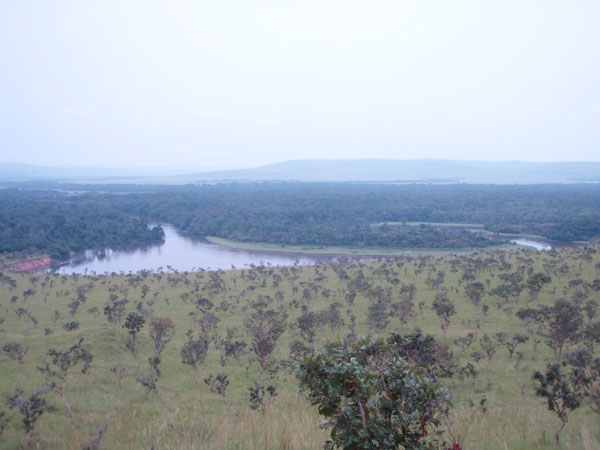 |
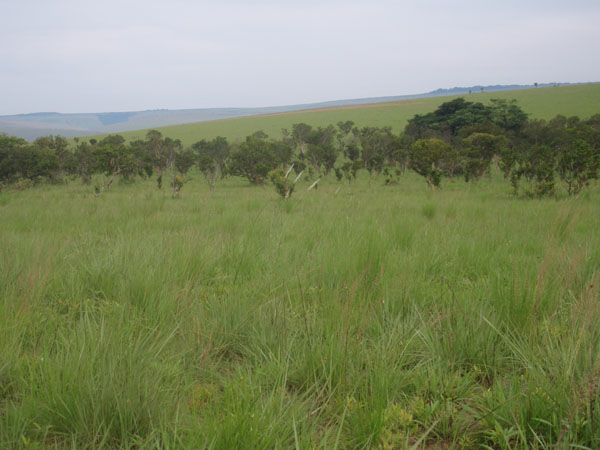 |
| Old wooded savanna (without burning for more than 15 years) | Height of the plants in savanna |
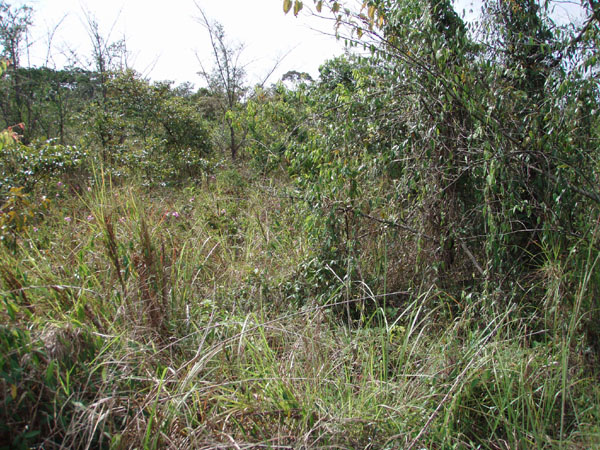 |
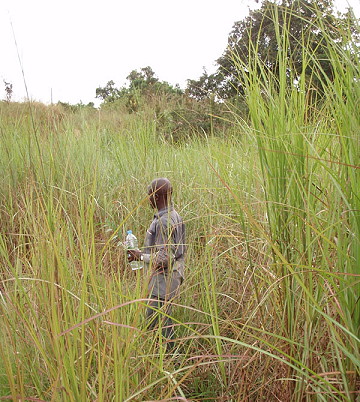 |
| Burnt savanna | Burnt savanna |
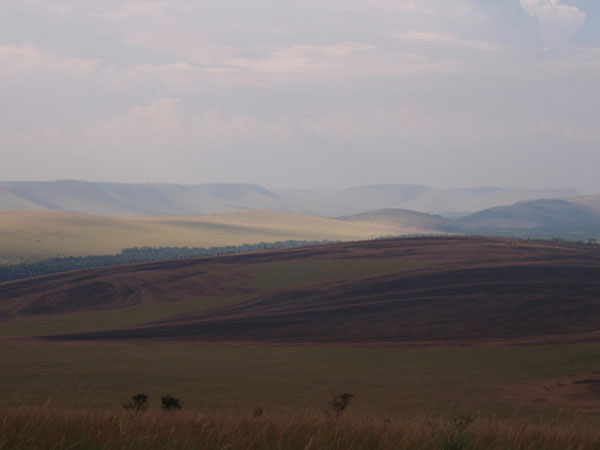 |
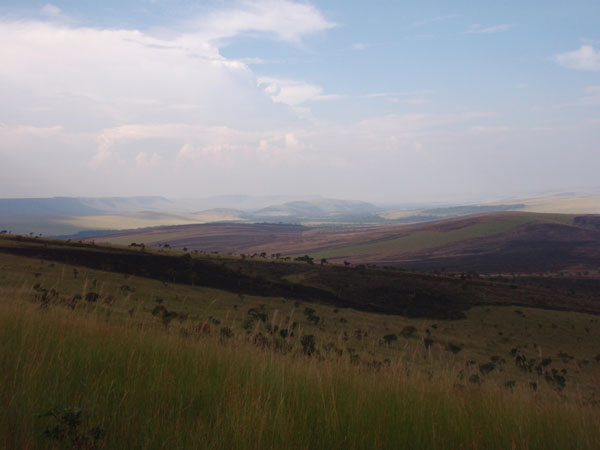 |
| Savanna and wooded savanna in the dry season | New growth of plants after burning |
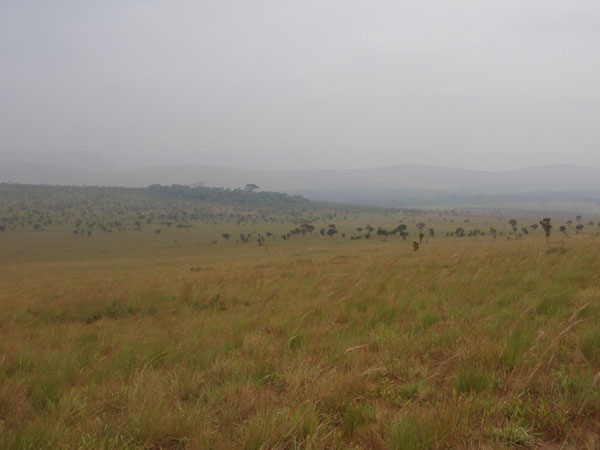 |
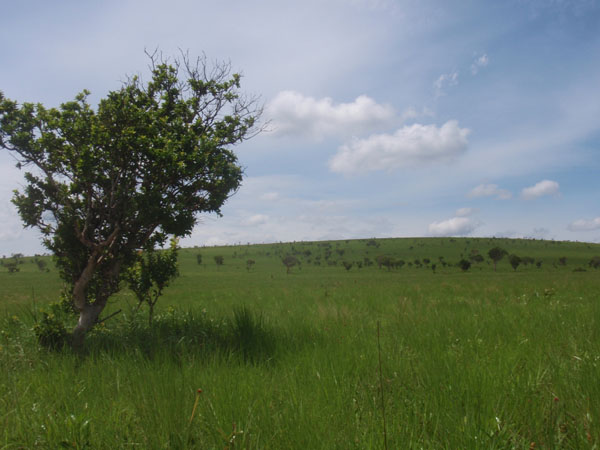 |
| View from the river |
View from the river |
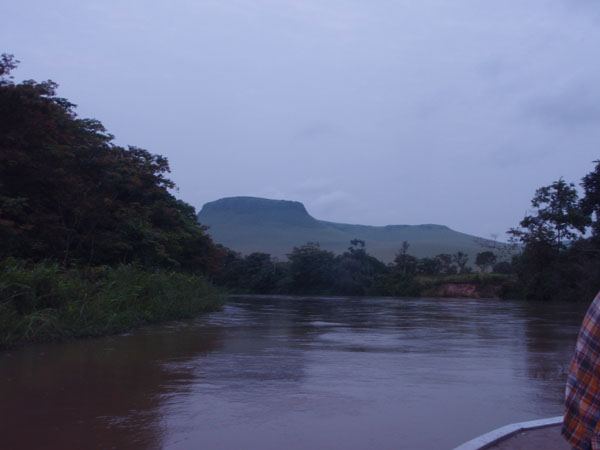 |
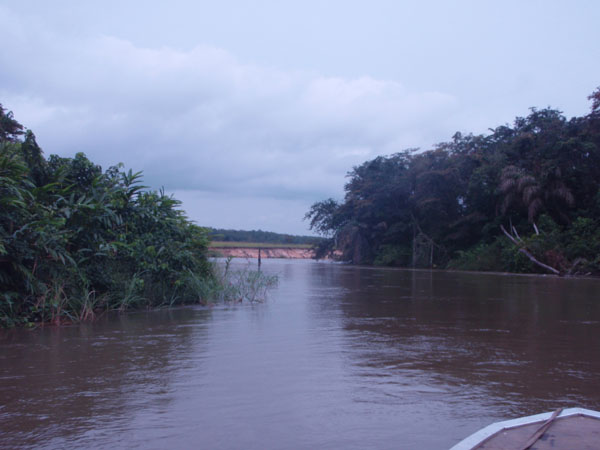 |
| View around a river | Edge of the river |
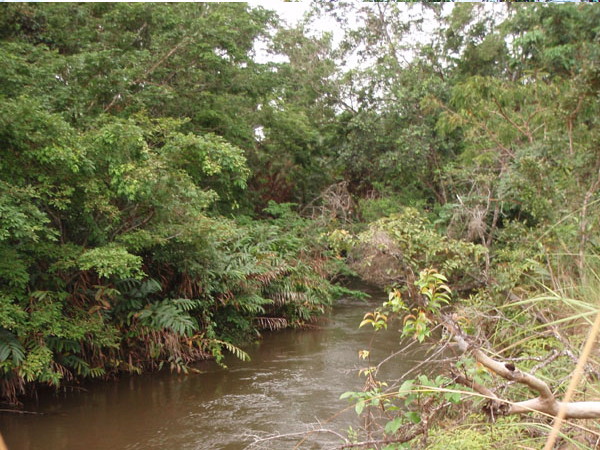 |
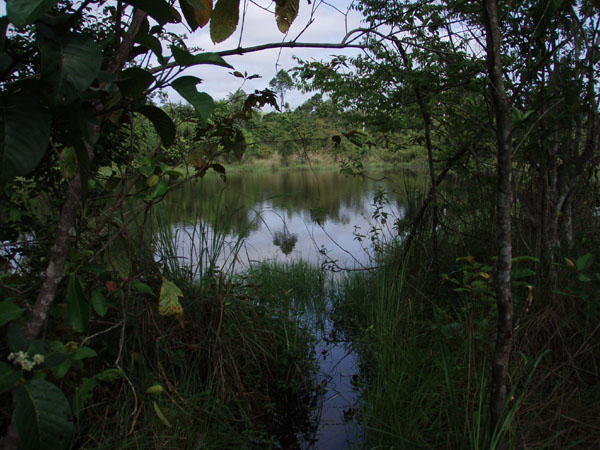 |
| © 2009 - Brian Taylor CBiol
FIBiol FRES 11, Grazingfield, Wilford, Nottingham, NG11 7FN, U.K. |
href="new_records_congo_2a.htm